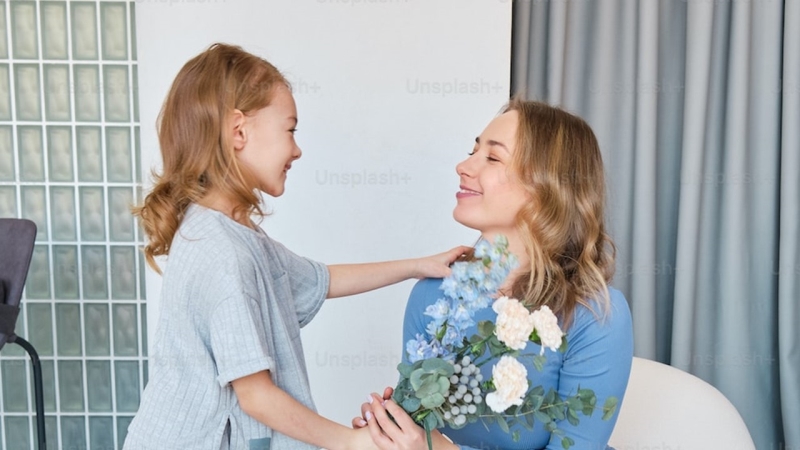IN LIFE, PERSONALLY AND PROFESSIONALLY, I’VE COME TO UNDERSTAND the immense importance of solid and efficient relationships. These connections foster trust and collaboration and enable individuals to support and uplift each other, ultimately propelling everyone towards their goals. But it takes time, work, and unwavering commitment to build and keep these ties strong. Even so, there’s no question that the benefits are worth all the work.

![]()
The Foundation of Strong Relationships:
TRUST

The foundation of a strong relationship lies in trust. When two individuals genuinely get along, they develop a sense of faith in each other’s integrity, abilities, and good intentions. Trust must be earned through consistent actions demonstrating reliability, honesty, and genuine care for others. It creates a safe and valued space where individuals feel secure, fostering open communication, effective collaboration, and mutual support.
Establishing Trust Through Actions and Honesty
To establish trust, I firmly believe in the power of actions. Promises must be kept, responsibilities fulfilled, and honesty consistently upheld. Words alone cannot build trust; the tangible demonstration of one’s character speaks volumes.
Additionally, honesty and openness are essential in fostering trust. Sharing knowledge, owning up to mistakes, and refraining from deceit or concealment lay the groundwork for genuine connections.

![]()
Relationships Never Die a Natural Death:
They Are Murdered.

Relationships do not simply fade away on their own. Attitude, behavior, ego, or ignorance often lead to their untimely demise. Relationships can deteriorate due to negative factors like poor communication, disrespect, and selfishness.
While negative factors can indeed play a role in the demise of a relationship, they’re not always the sole cause. Sometimes, relationships can run their course, evolve in different directions, or become incompatible.
Here’s a more balanced perspective.
It’s important to remember that relationships can also thrive and blossom with care and effort. They can be nurtured and strengthened in the following ways:
-
-
- Open and honest communication: Sharing feelings and perspectives openly and respectfully can foster understanding and connection.
- Active listening: Truly hearing and acknowledging your partner’s needs and experiences builds trust and intimacy.
- Mutual respect and understanding: Recognizing and valuing each other’s individualities and differences strengthens the bond.
- Empathy and compassion: Being supportive and offering understanding during challenging times can deepen the emotional connection.
- Shared experiences and goals: Working together towards common goals and creating happy memories strengthens the foundation of the relationship.
- Individual growth and self-awareness: Working on personal development and understanding one’s triggers and needs can improve communication and emotional intelligence within the relationship.
-
Instead of focusing solely on the potential “murder” of relationships, it’s important also to acknowledge their resilience and the possibility for growth and transformation. With conscious effort and dedication, relationships can overcome challenges and flourish.

![]()
Open and Honest Communication:
The Cornerstone of Trust

Open and honest communication has been the cornerstone of building trust in my relationships. To build trust, I’ve learned to be frank about my deeds and intentions and to talk about my feelings and thoughts in a respectful way. Making a safe and welcoming place for deep conversations has been very important so people can say what they think without fear of punishment or judgment.
Transparency and Directness in Communication
Being straightforward and not withholding key details is crucial when sharing vital information. Maintaining clarity and directness in my communication ensures that my thoughts and feelings are effectively conveyed. Moreover, actively seeking feedback from others has been instrumental in addressing issues and improving interactions.

![]()
The Significance of Active Listening

Communication, particularly active listening, is pivotal in developing understanding and trust within relationships. Actively listening means giving someone your undivided attention, both verbally and nonverbally. It involves being fully present, absorbing their words and emotions, and responding with genuine care.
Strategies for Effective Active Listening
To truly listen actively, distractions must be set aside. Other tasks and responsibilities should avoid interfering with the valuable connection forged through conversation. Maintaining eye contact, nodding to convey understanding, and displaying appropriate facial expressions signify attentive listening.
Moreover, summarizing and paraphrasing what has been shared ensures clarity and minimizes misunderstandings. When necessary, asking for further information to deepen comprehension showcases a genuine desire to understand and connect.

![]()
Cultivating Empathy and Compassion

Empathy and compassion are the cornerstones of deepening connections and fostering mutual support. Empathy allows us to step into someone else’s shoes, embracing their perspective and emotions.
Compassion, on the other hand, drives us to alleviate their pain and offer assistance when needed. By nurturing empathy and compassion, we can forge profound bonds and provide valuable support to those around us.
Nurturing Empathy and Compassion in Relationships
Putting ourselves in others’ shoes is crucial to developing empathy. It requires actively seeking to understand their thoughts and emotions, fostering a deep connection based on shared understanding.
Acknowledging and accepting their positive and negative feelings validates their experiences and strengthens the bond. Offering unwavering mental support and encouragement during challenging times further solidifies the connection. However, it is essential to respect emotional boundaries and refrain from offering unsolicited advice or judgments.

![]()
The Power of Expressing Gratitude and Appreciation

Expressing gratitude and appreciation plays a significant role in making individuals feel valued and acknowledged within a relationship. By thanking others for their contributions, efforts, and positive qualities, we inspire them to continue participating actively. Through heartfelt words, written notes, or thoughtful gestures, expressing appreciation becomes a habit that enriches the relationship.
Encouraging reciprocity further nurtures a culture of gratitude, fostering an atmosphere of appreciation and mutual support. It promotes giving back and cultivates a deep sense of gratitude in our community.
Fostering this culture creates an environment where people appreciate and acknowledge each other’s efforts and kindness, leading to a mutual support system. In such a setting, supporting one another becomes integral to our community’s fabric, strengthening bonds and fostering a culture where gratitude and support thrive.

![]()
Navigating and Resolving Conflicts Effectively

No relationship is without its conflicts and disagreements. But how we deal with these times decides how strong and long-lasting the relationship is. When people have different ideas, it’s essential to keep an open mind and look for ways to work things out that are good for everyone. Personal attacks, pointing fingers, and broad statements are not allowed. This keeps the connection honest and allows for productive conversation.
Embracing Diversity and Forgiveness
Along my path, I’ve learned to value and welcome the things that make other people unique. Appreciating different thoughts and experiences makes our relationships stronger and our views broader.
Additionally, forgiveness plays a vital role in letting go of anger and allowing space for growth. By forgiving past mistakes, we create an environment where individuals can learn and relationships flourish.
Respecting Boundaries and Seeking Professional Help
Your health needs to set and respect healthy limits, and it’s also essential to respect the boundaries of others. We protect our mental and emotional health by developing and upholding these boundaries.
Professional help from therapists or counselors can be beneficial when conflicts persist or communication becomes challenging with a partner. Their guidance can provide valuable insights and strategies to overcome obstacles.

![]()
Nurturing Relationships:
Investing Time and Energy

Building solid connections requires time and effort. I have come to appreciate the importance of dedicating regular moments for meaningful conversations, shared experiences, and deepening our understanding of one another. I keep the bond alive and thriving by genuinely wanting to know about their ideas and experiences.
Regular Interactions and Shared Experiences
Investing in relationships is akin to investing in oneself. To nurture these connections, I establish regular interactions such as monthly phone calls, weekly lunches, or engaging in activities we enjoy. Celebrating each other’s successes, both big and small, strengthens the bond further. I am present and interested in talks by avoiding distractions, doing different things simultaneously, and demonstrating my commitment to the relationship.

![]()
Building Strong and Efficient Relationships:
Lessons from My Journey

In my journey, I’ve appreciated the transformative power of building strong and efficient relationships. Trust, active listening, empathy, gratitude, and conflict resolution are the pillars that support these connections. As I continue investing time, effort, and dedication into nurturing these relationships, I am rewarded with meaningful connections that enhance my personal and professional life.
Key Takeaways from My Memoir
As a memoirist, I reflect on the valuable strategies that have helped me navigate and resolve conflicts. These approaches have proven universally applicable, fostering healthy relationships and personal growth.
-
-
- Getting to the Bottom of Conflicts: One of the critical aspects is identifying the root cause of disagreements and delving deeper into the underlying issues at hand.
- Actively Listening and Avoiding Distractions: I practice active listening and avoiding interruptions and distractions by giving my undivided attention to others during conversations. This genuine focus allows me to understand their perspective and intentions truly.
- Cultivating Open and Honest Communication: Open and honest communication has been the cornerstone of building trust in my relationships. I have learned to be transparent in my actions and communication to cultivate this trust.
-

![]()
Conclusion:
The Rewards of Strong Relationships

Good relationships are essential for personal growth, job success, and general health. Trust, paying attention, understanding, gratitude, resolving disagreements, clear communication, and putting in time and effort can all help us make bonds that last and improve our lives. Building good relationships takes time, work, and dedication. Still, the rewards are enormous and lead to a happier, more fulfilling, and successful life.
These ties with family, friends, and coworkers create a vital support system, offering constant celebration during victories and unwavering support during tough times. The sense of belonging, affection, and acceptance derived from such connections is unmatched.
Beyond emotional well-being, good relationships enhance life fulfillment through honest talks, shared experiences, and lasting memories. Laughter-filled nights with friends and genuine chats with loved ones contribute to a joy-filled life. Moreover, strong relationships can be instrumental in achieving success by opening up opportunities and supporting career endeavors, business startups, and personal aspirations.
Investing in relationships is a valuable effort that increases happiness, fulfillment, and success. A solid support system, built through love, support, and meaningful connections, transforms each day into a gift.



